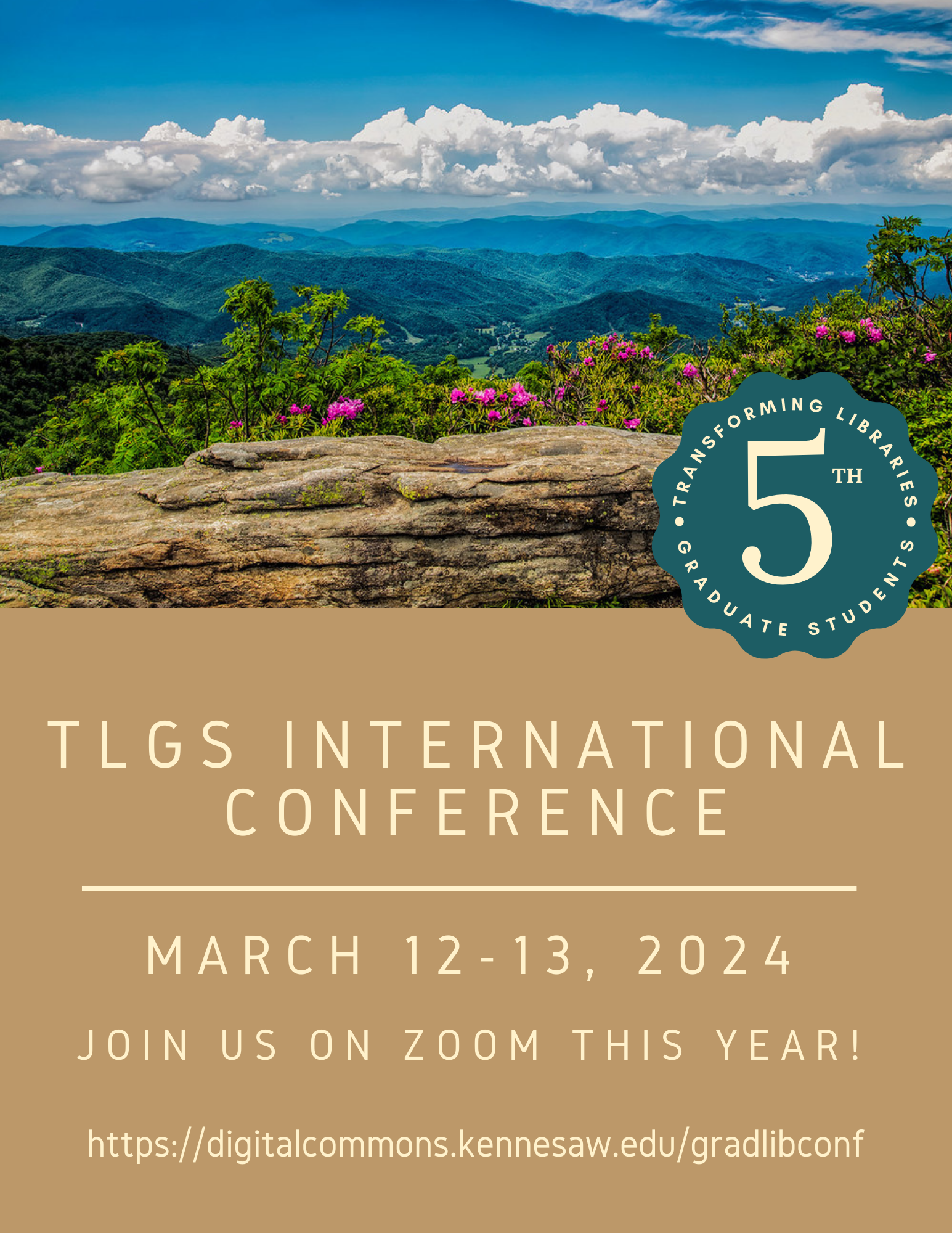Loading...
Start Date
3-13-2024 3:00 PM
End Date
3-13-2024 4:00 PM
Keywords
AI, literature review, digital tools, literature review tools
Description of Proposal
A core role for academic librarians is to support early career researchers as they develop an increasingly focused understanding of the literature in their discipline and research area in order to contribute to the development of new knowledge. Graduate students use their knowledge of the literature to develop research questions and argue for the value of their work to the broader community of scholars.
This task is both intellectually and technically challenging. A dissertation or thesis requires that students demonstrate knowledge of their field as well as cite perhaps hundreds of sources. This process has long been supported by tools for collecting and citing literature, such as Zotero or EndNote. But in recent years, companies have developed tools that purport to address the challenges of this process by helping scholars identify relevant literature and even to develop summaries and analysis of existing sources through the use of AI or other automated technology.
We have observed increasing interest in these tools among graduate students. At the same time, we are aware of some trepidation from librarians and faculty about the impact of such tools on graduate students’ ability to not just search for and connect the literature, but to gain a deep and focused understanding of a body of research. In particular, we are concerned about how the developers of such tools characterize the process of conducting a literature review, which should be seen as an act of intentional analysis and argumentation.
In this presentation, we offer the results of an environmental scan of these tools to understand their intended use and features with an eye to understanding how the promotion of these tools describe the literature process. With this information, we then critically examine the potential of these tools for the literature review process for identifying relevant research and developing a review that supports the graduate student’s own scholarship. Given the cost to access these tools, privacy concerns for users, and known issues with AI for analysis, we propose to assess whether this technology solves many of the challenges of literature review work or whether they divert graduate students’ focus thereby hindering the ultimate goals of knowledge acquisition and production within the students’ discipline or professional field.
Help or hype? Assessing digital literature review tools for graduate students
A core role for academic librarians is to support early career researchers as they develop an increasingly focused understanding of the literature in their discipline and research area in order to contribute to the development of new knowledge. Graduate students use their knowledge of the literature to develop research questions and argue for the value of their work to the broader community of scholars.
This task is both intellectually and technically challenging. A dissertation or thesis requires that students demonstrate knowledge of their field as well as cite perhaps hundreds of sources. This process has long been supported by tools for collecting and citing literature, such as Zotero or EndNote. But in recent years, companies have developed tools that purport to address the challenges of this process by helping scholars identify relevant literature and even to develop summaries and analysis of existing sources through the use of AI or other automated technology.
We have observed increasing interest in these tools among graduate students. At the same time, we are aware of some trepidation from librarians and faculty about the impact of such tools on graduate students’ ability to not just search for and connect the literature, but to gain a deep and focused understanding of a body of research. In particular, we are concerned about how the developers of such tools characterize the process of conducting a literature review, which should be seen as an act of intentional analysis and argumentation.
In this presentation, we offer the results of an environmental scan of these tools to understand their intended use and features with an eye to understanding how the promotion of these tools describe the literature process. With this information, we then critically examine the potential of these tools for the literature review process for identifying relevant research and developing a review that supports the graduate student’s own scholarship. Given the cost to access these tools, privacy concerns for users, and known issues with AI for analysis, we propose to assess whether this technology solves many of the challenges of literature review work or whether they divert graduate students’ focus thereby hindering the ultimate goals of knowledge acquisition and production within the students’ discipline or professional field.



What takeaways will attendees learn from your session?
Knowledge of the types of digital tools for literature reviews that graduate students may encounter.
Understanding the broad contours of the debate surrounding the pros and cons of digital tools for scholarly literature review work
Strategies for engaging with graduate students who are interested in using digital literature tools